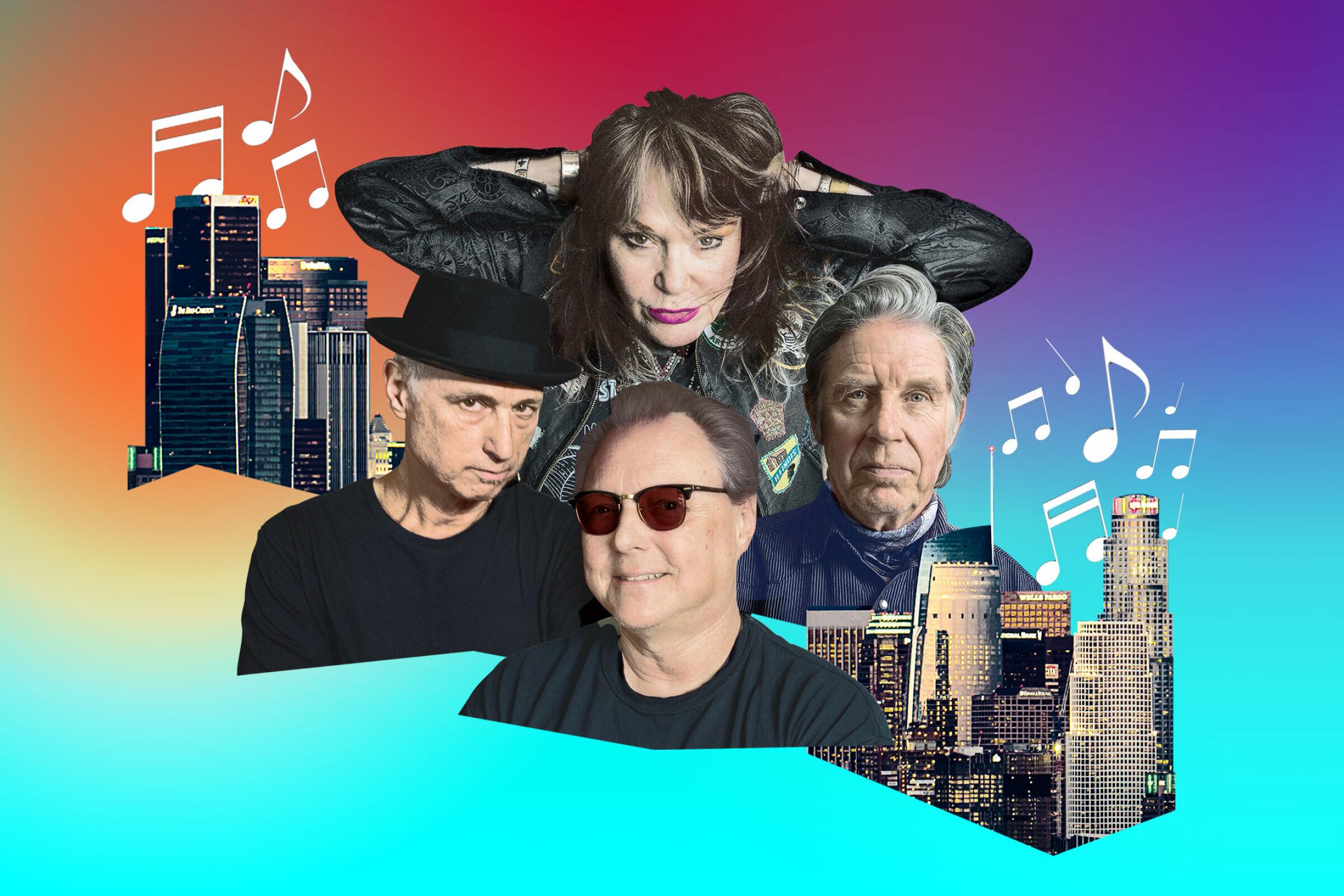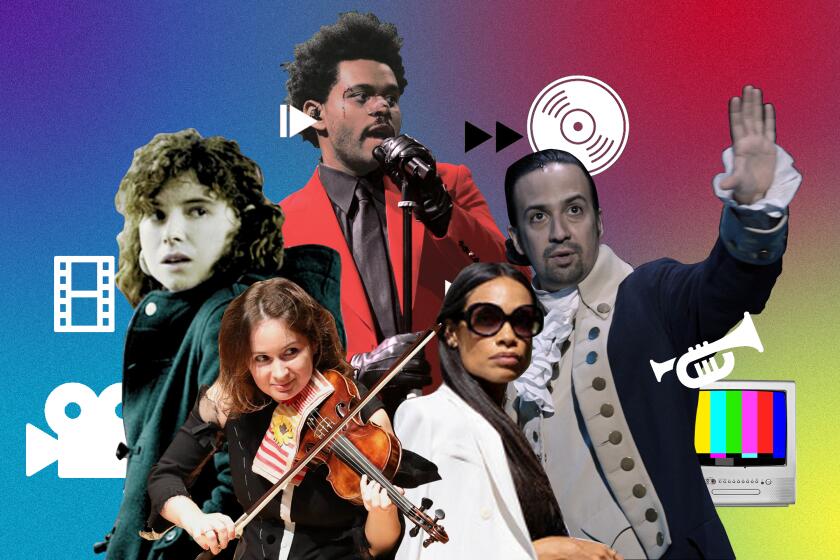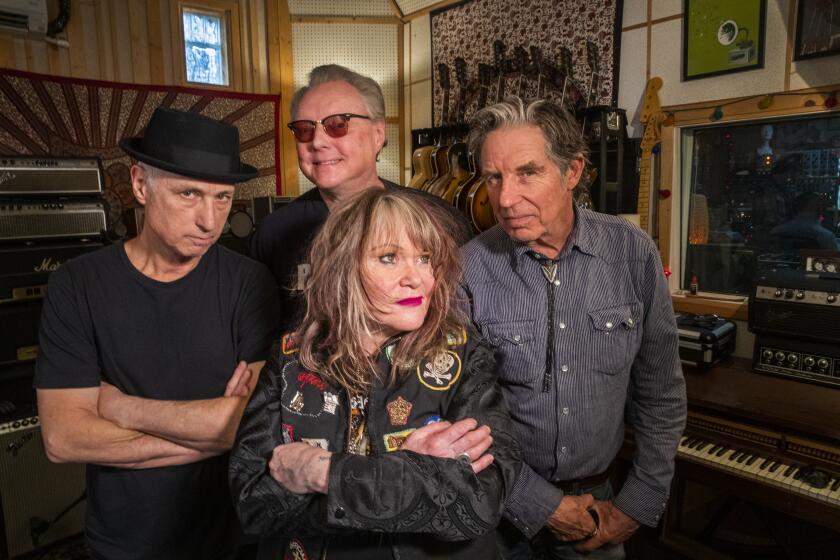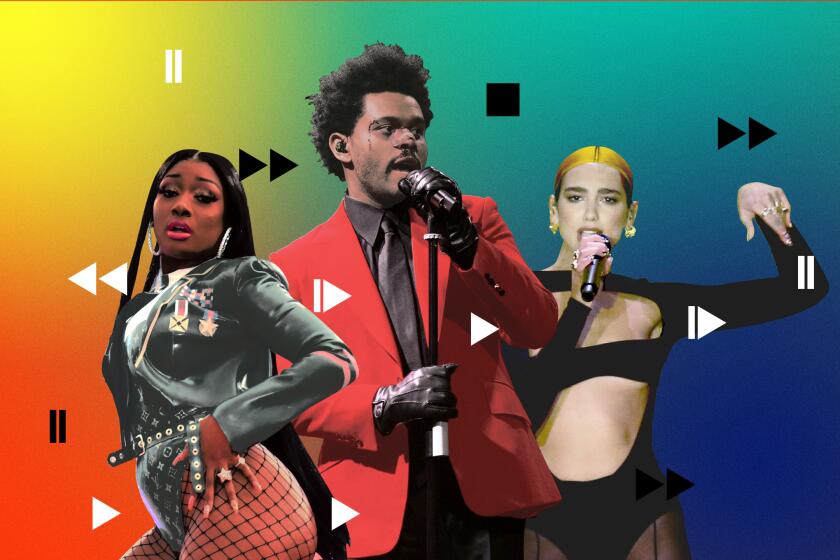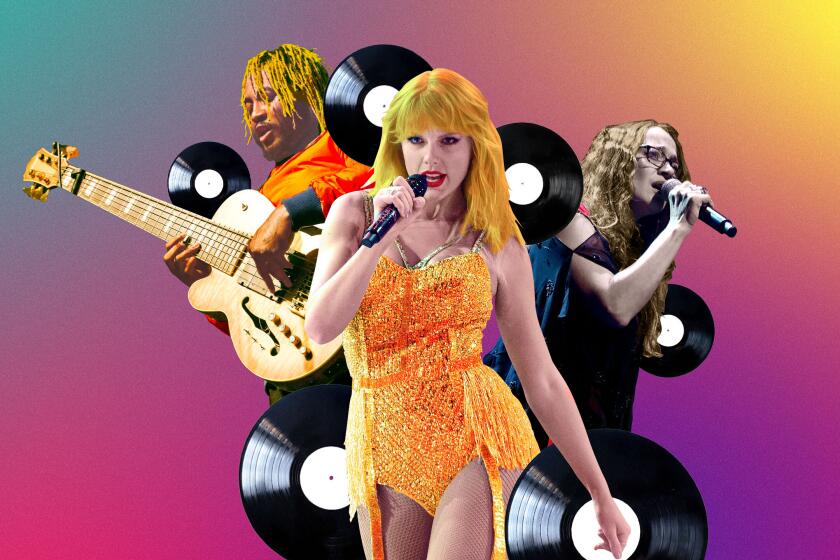For reasons too obvious to note, those of us with any sense spent an inordinate amount of time surrounded by four walls and consumed with well-founded dread. Time crawled. Doomscrolling made it worse. Sometimes the only way to distinguish one Blursday from the next was by recalling what series or Ben & Jerry’s pint you binged on.
Los Angeles musicians, as usual, stepped up when we needed them most, filling the sheer volume of unstructured time with organized, or joyfully disorganized, noise. Best, the wide-open days and nights allowed for the kind of deep, uninterrupted listening that rewarded patience. Below, 10 of the best albums by Los Angeles-based artists.
1. Jyoti, “Mama You Can Bet!” (SomeOthaShip)
The third album in a jazz-focused series that the Grammy-nominated artist born Georgia Anne Muldrow began under the Jyoti moniker in 2010, “Mama You Can Bet!” serves as revelatory reinforcement of the native Angeleno’s vision. The daughter of session musicians, she was given the Jyoti name by spiritual-jazz legend Alice Coltrane, and “Mama You Can Bet!” is infused with a similar spirit. Muldrow treats her rhythms with a structural looseness that suggests producer J Dilla’s wobbly work. At first, the wooziness feels unpracticed, as if she’s reaching for a sound she can’t quite capture. But as the album evolves, the beats lock into place. Then, like eyes adjusting to 3-D glasses, the full measure of her intentions are revealed.
2. X, “Alphabetland” (Fat Possum)
X, “Water and Wine” video
Rock ’n’ roll is riddled with reunited has-beens eager to tap nostalgia in exchange for one last paycheck. History shows that it’s a terrible, horrible, rotten idea. What’s never been a bad idea is X’s version of rock ’n’ roll, which has long featured hard, distorted energy fired by the back-and-forth disharmony of Exene Cervenka and John Doe. This, the first album to feature the two alongside founding members Billy Zoom and D.J. Bonebrake in 35 years, feels not like a reunion (which it’s not, as they’ve constantly toured as a unit) but a charged, furious continuation.
3. Dinner Party, “Dinner Party” (Sounds of Crenshaw)
Dinner Party, “Freeze Tag”
At the end of last year, a quartet of Grammy-nominated L.A. jazz and hip-hop players — Terrace Martin, Kamasi Washington, Robert Glasper and 9th Wonder — converged in a studio to make a contemporary soul-jazz record. Propelled by 9th Wonder’s beats, the unit wove themes including desire, love and betrayal into a lush seven-song cycle. The pinnacle, and one of the best songs of the year, is “Freeze Tag,” a searing indictment of racist profiling and state-sanctioned oppression.
See more coverage of 2020's best music
4. William Basinski, “Lamentations” (Musex/Temporary Residence)
William Basinski, from his album “Lamentations”
Masterful minimalist composer and tape manipulator Basinski’s newest work furthers a stylistic approach typified in his most famous work, 2014’s “The Disintegration Loops.” Filed in the “ambient” vertical of your favorite streaming service, the dozen tracks on “Lamentations” drift as if on the verge of becoming unmoored, with gradual, churning shifts. Grim? Yep. It’s been a grim year. But “Lamentations” doesn’t mean endless dirges. Basinski understands the way that tones and frequencies interact as they hit eardrums, and the result are compositions that, listened to at proper volume, send shivering, sonically comforting beams through the body.
5. Drakeo the Ruler, “Thank You for Using GTL” (self-released)
South L.A. rapper Drakeo the Ruler recorded his album via telephone line from the L.A. County Men’s Central Jail. Each of the 19 tracks on “... Using GTL” is a three-person collaboration among a low-fidelity Drakeo using his daily phone privileges, producer Joogszn weaving in minimal rhythms and laser-gun sounds and the anonymous female voice of the inmate telephone system GTL reminding them that the call is being recorded. Many songs end with the voice saying, “Thank you for using GTL.” Not only is the whole thing a testament to Drakeo’s skills at tapping his muse within a tortuously oppressive environment, but it’s woven together to indict the American criminal justice system, and the ways in which the gears of commerce profit from essential human needs.
6. Eddie Chacon, “Pleasure, Joy and Happiness” (Day End)
